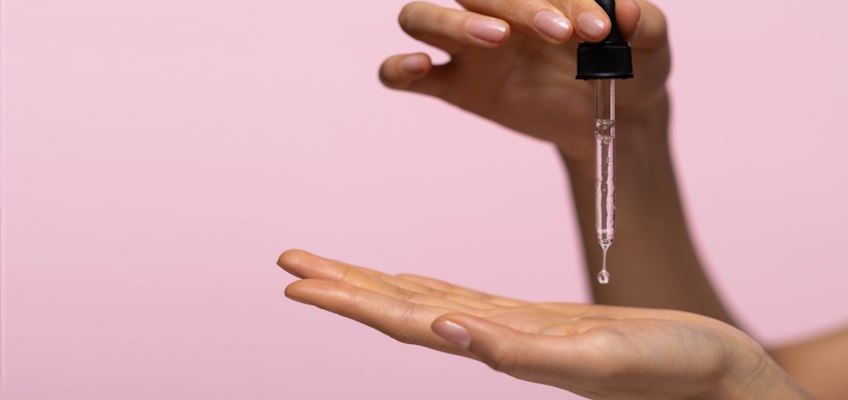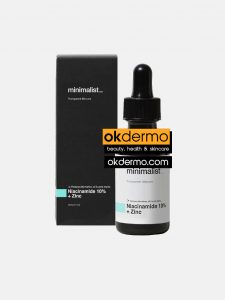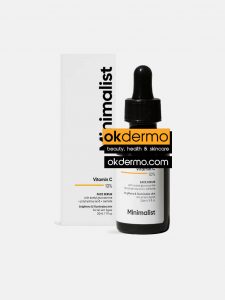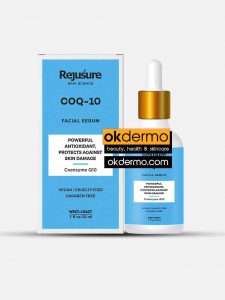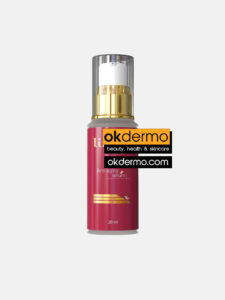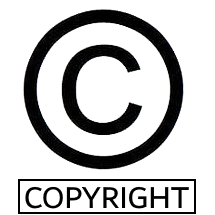How to Choose the Best Anti-Aging Serum for Your Unique Skin: A Comprehensive Guide
Table of Contents
Introduction
Aging is a natural process that all living creatures in the world must go through, and along this journey, the functionality of our organs tends to decline over time, with our appearance being no exception. As we get older our skin undergoes a series of unique changes that everyone hates, making the category of anti-aging products the most saturated one in skin care.
These skincare products with some key active ingredients are designed to fight the signs of aging and give you more youthful and rejuvenated skin. However, with plenty of options on the market nowadays, how do you choose the right one for your unique skin and age? Don’t worry! In this article, we will delve deep into the science behind various aging concerns, explore key ingredients to look for in products, and provide guidance on choosing the best anti-aging serum for your age group, whether you are in your 40s, 50s, or 60s.
Common aging signs
The most common age-induced skin concerns include,
- The emergence of fine lines and wrinkles
- Sagging skin.
- Poor skin texture
- Dehydration and dryness
- The appearance of age spots
And now it is time to explore each of these skin conditions with particular attention to their underlying causes and contributing factors.
Fine lines and wrinkles
The emergence of wrinkles and fine lines is one of the most obvious impacts of aging on skin health. As you may already know, the main reason for this concern is the natural decrease in collagen production associated with aging.
Collagen is the most abundant structural protein in your skin that keeps your skin firm and supple hence, its depletion will result in loss of skin suppleness leading to the development of wrinkles. According to studies, after the age of 20, collagen production falls by roughly 1% annually, with the decline in women after menopause being more pronounced.
Sagging skin
The degradation of elastin fibers along with collagen is another important element in skin aging. Elastin assists the structural framework of the skin that is primarily maintained by collagen by giving your skin the important feature of elasticity; the skin’s capacity to retract after stretching.
However, elastin fibers lose their elasticity as we age, contributing to sagging skin. Also, according to research, the enzymes called Matrix metalloproteinases (MMPs), that are responsible for the breakdown of elastin fibers become more active as we age, leading to a range of aging signs.
Poor skin texture
Alterations in the skin texture are another aging sign that many people experience as they age and, this is a result of decreased rate of cell turnover in the skin. Young individuals usually have smooth and even complexion because of the optimal rate of cell turnover where there is constant shedding of old skin cells followed by the replacement with healthy new cells.
But as we grow older, the rate of cell turnover slows, leading to an accumulation of dead skin cells on the surface. A dull and rough skin texture may result from this. Exfoliation and the use of skin care products like retinoids have been demonstrated in studies to enhance skin texture and increase cell turnover in aged people.
Dehydration and dryness
As we age, the skin’s natural lipid barrier loses its integrity and functionality over time, resulting in greater water loss and decreased moisture retention, and, as a result, aged skin becomes more prone to dry skin. According to research, topical moisturizers and anti-aging serums that contain moisture-retention substances such as hyaluronic acid and ceramides can help replace the skin’s moisture barrier and relieve dryness.
Age spots
The effects of aging on skin health are not solely determined by intrinsic factors inside the skin. In fact, extrinsic factors such as sun exposure can also combine with intrinsic factors to trigger further skin aging. Ultraviolet (UV) radiation from the sun contributes to premature aging, inducing hyperpigmentation disorders of the skin.
Hyperpigmentation associated with UV radiation leads to the formation of age spots, also known as solar lentigines which are dark skin patches due to clusters of melanin-concentrated cells. The appearance of these aging signs, particularly on the face, can be a major concern for negative self-perception and low self-esteem among the affected individuals.
Active Ingredients and Products
Now, let’s explore the active ingredients that can slow down the natural aging process and the best anti-aging serums out there on the market for different age groups.
Best Anti-Aging Serums for Your 40s
According to the rate of natural depletion of collagen, by the time you reach your 40s, you may have lost about 20% of your collagen. This reduction has been identified as the most significant contributor to the formation of wrinkles and other aging signs during this period.
Therefore, to address this concern, consider using anti-aging serums that contain:
Retinol: Retinol is a form of vitamin A that promotes collagen and elastin production along with better moisture retention by the skin. By reducing the breakdown of collagen and making your skin more elastic, this potent ingredient can lessen the look of fine lines and wrinkles while improving skin hydration.
Hyaluronic Acid: Hyaluronic acid, often known as HA, is a naturally occurring glycosaminoglycan, which is a type of sugar molecule found in the skin that aids in moisture retention improving skin texture. Using products containing hyaluronic acid can hydrate and plump up the skin, reducing the signs of premature aging.
Niacinamide: Niacinamide is a form of vitamin B that has anti-inflammatory properties. Therefore, it helps manage inflammatory hyperpigmentation as well as age spots and evens out skin tone.
A product like Minimalist® (Vitamin B3) Niacinamide 10% Face Serum is an excellent choice for those in their 40s as it contains key actives like HA, Niacinamide, Zinc, and important antioxidants to slow down the aging at its initial stage.
Best Anti-Aging Serum for Your 50s
In your 50s, the signs of aging become more prominent as the drop in collagen is now significant enough to make a noticeable difference in your skin. According to the calculation of a 1% yearly decline of collagen since the early 20s, at this period, you will only be left with roughly 70% functional collagen to maintain your skin health.
Therefore, look for anti-aging serums that include:
Peptides: Peptides are chains of amino acids that work as the building blocks of proteins required by the skin. Elastin and collagen are also proteins composed of polypeptide chains, meaning that adding peptides can enhance your skin’s production of collagen.
Vitamin C: Vitamin C, also known as ascorbic acid, works primarily as an antioxidant that has several types of anti-aging effects on the skin, including boosting collagen synthesis, combating oxidative stress in the environment, such as UV-induced hyperpigmentation, and alleviating dryness.
Coenzyme Q10: Coenzyme Q10 (CoQ10) is a naturally occurring component of foods and is frequently used in cosmetic products and food supplements nowadays. When it comes to its effects on skin health, it works quite similar to Vitamin C acting as a key antioxidant that can battle skin-damaging free radicals.
According to some studies, CoQ10 creams and moisturizers can be used in conjunction with retinol to prevent visible signs of aging by tightening and lightening skin, correcting UV damage, and boosting collagen formation.
You may consider the following serums for comprehensive anti-aging benefits if you are in your 50s.
Minimalist® Vitamin C 10% Face Serum contains potent actives such as Vitamin C for collagen-boosting, Acetyl Glucosamine to improve skin tone and texture, Gluconolactone (PHA) to remove dead skin cells, and Centella Asiatica (Centella) for anti-inflammatory support.
Rejusure® COQ-10 Antioxidant Facial Serum can be beneficial for those in their 50s thanks to its Coenzyme Q10 based antioxidant-rich formula that fights signs of aging by promoting collagen production, offering UV protection, hydrating the skin, and contributing to overall skin health.
Best Anti-Aging Serums for Your 60s
In your 60s, it’s essential to focus on products that provide intense hydration and nourishment. Look for anti-aging serums with:
Ceramides: Ceramides are lipid molecules that make up a significant portion of the skin barrier, playing a major role in moisture retention. Therefore, applying ceramide-based anti-aging products can restore optimal levels of natural ceramides and improve hydration.
Growth Factors: Growth factors are natural substances that regulate cellular mechanisms such as cell proliferation and differentiation which are important in reversing the process of aging signs.
Anti-Inflammatory Ingredients: Ingredients like niacinamide can soothe inflammation and age-related hyperpigmentation conditions.
For those in their 60s, “Liftage® Anti-Aging Face Serum ” is an effective product to consider. It is a serum with moisturizing and anti-aging properties that utilize collagen boosters to firm and strengthen the skin, peptides to improve skin elasticity, and retinol to reduce wrinkles and age spots.
The Art of Product Application
When it comes to incorporating an anti-aging serum into your skincare routine, you need to know the proper order of product application to maximize the benefits of your anti-aging serum as well as other skincare components.
Here is a general idea of what this order should look like to build an effective daily skincare routine with your anti-aging serum.
- Cleanser: First, you need to cleanse your skin properly to remove cellular debris, oil, and any makeup. For this, you may use a gentle cleanser.
- Toner: To balance the pH levels of your skin you may use a toner after cleansing.
- Serum: Now you can apply the anti-aging serum of your choice. Start with a tiny bit and gently massage it into your skin. When applying the serum, don’t forget to pay special attention to the areas with signs of aging.
- Moisturizer: Applying a moisturizer afterward will be more beneficial for prolonged moisture retention.
- Sunscreen: Don’t forget to wrap up your routine with a broad-spectrum sunscreen that has an SPF of at least 30 to prevent triggering any natural aging mechanisms by UV radiation.
The Importance of Sun Protection

Using an anti-aging serum without proper sun protection is like taking one step forward and two steps back. The sun’s UV rays can accelerate skin aging and negate the benefits of your serum.
If you are already experiencing signs of aging, protecting your skin from harmful UV exposure should be the first and foremost step to be taken in preventing further exacerbation. This step is so crucial that using an anti-aging serum without effective sun protection will be equivalent to taking two steps forward and one step back.
Therefore, follow these tips to shield your skin from the harmful UV radiation from the sun.
- Even on cloudy days, make it a habit to apply sunscreen every morning and reapply sunscreen every 3-4 hours if you keep staying outside.
- No sunscreen is 100% effective in avoiding sunburn and skin damage. Therefore, in addition to sunscreen, you will need protective clothes such as hats and sunglasses to avoid direct sun exposure.
Tips to Minimize Side Effects
Follow these steps to reduce any adverse effects of the active ingredients and, enjoy a great experience with your anti-aging serum:
- If you have sensitive skin, it is better to start with a lower dose of the active ingredient and gradually increase it over time. So, try a low-intensity ant-aging serum first.
- Before applying the serum to your gentle skin areas like the face, we recommend you to perform a patch test to check for any allergies or adverse effects.
- Use the product only as directed and, if you suffer irritation or any allergic reaction the contact with active ingredients, limit the frequency of usage and seek medical advice.
Conclusion
Aging is a normal part of life. However, while there’s no way to turn back time, there are several steps you can take to slow down the natural aging process, and, especially, with the correct skincare regimen, you can make your skin look young again.
Also, keep in mind that whether you’re in your 40s, 50s, or 60s, there are multiple solutions available to help you minimize the signs of aging and achieve the skin you desire. So, always prioritize quality, consistency, and patience when it comes to your skincare routine, and remember that each step you take will be a step towards more youthful skin and more self-confidence.
Post by:
Marcella Jiovanni
Skin Care Professional
“Marcella Jiovanni actively promotes the importance of maintaining healthy skin, she envisions the future of dermatology as moving away from pure medical, pharmacological dermatology and flowing more toward a holistic approach to wellness and skincare.”

